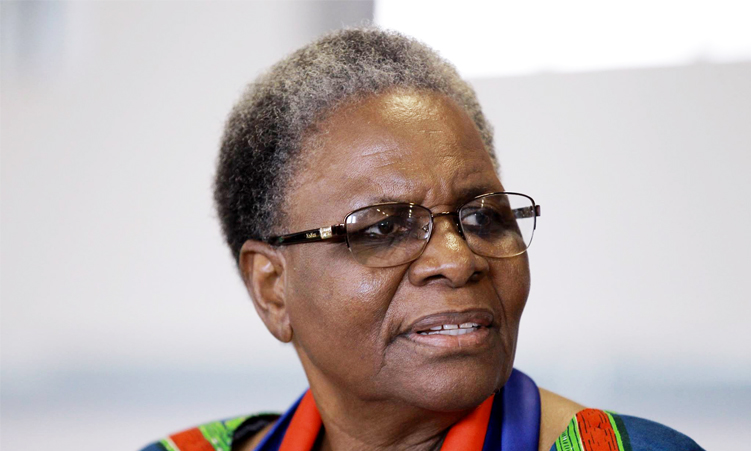JOHANNESBURG – South Africa’s new opposition leader Helen Zille has a rare chance to reposition her party and increase its black appeal.
Analysts believe the new Democratic Alliance (DA) leader, overwhelmingly elected at a party congress at the weekend, is likely to adopt a fresh approach that is less confrontational and more understanding of the country’s history of racial oppression. “She will be judged on her ability to bring about a new style of opposition, one that is more sympathetic to the concerns, history and aspirations of the majority of (black) South Africans,” said research associate Steven Friedman of the Institute for Democracy in South Africa think-tank.”She certainly gives an impression that she is …pursuing a different approach – a more inclusive one.”Zille’s predecessor, Tony Leon, was branded elitist and racist by the nationally ruling African National Congress (ANC) for his confrontational style and vehemence in opposing its policies on many issues.The DA under Leon was perceived by some as a defender of white privilege for taking on minority issues in a manner seen as insensitive to the black majority.Most of its supporters are English- and Afrikaans-speaking whites, coloureds (South Africans of mixed race) and some Indians.The DA, born from a marriage between the former liberal Democratic Party and the New National Party, a successor to the National Party that ruled during apartheid, has grown from a small minority party in 2000 to one with 57 MPs out of about 400 in Parliament.It claims to represent two million voters in a total South African population of 47 million – 80 per cent of which is black.Zille is seen as far more attuned to black sensitivities than Leon, with a background steeped in anti-apartheid culture.She exposed the state killing of a black rights activist as a journalist 30 years ago, and was involved in the anti-conscription campaign at a time when white soldiers were pitted against the black population.Ebrahim Fakir, senior researcher at the Johannesburg-based Centre for Policy Studies, said Zille must reposition the DA as a constructive opposition party that is respected by blacks even if they do not vote for it.”It is about how she will deracialise the appeal of the DA, make the language of liberalism responsive to the local context with its racial inequalities.”Zille (56) on Sunday beat off a challenge from the DA’s national chairman Joe Seremane and Eastern cape leader Athol Trollip, garnering 786 out of 1 085 votes cast.In her maiden speech on Sunday, Zille promised to make the party more representative, and urged DA members to learn an indigenous language in order to “build new bridges”.”We must create opportunities for new leaders to emerge so that our party looks and feels more like the society we want to represent,” she said.Zille, who remains mayor of Cape Town – the only major municipality not governed by the ANC – was congratulated on Monday by President Thabo Mbeki who had an icy relationship with Leon and only gave him one official audience in eight years.The ruling ANC declined to comment, but its youth league welcomed Leon’s resignation as “a blessing that creates a possibility for the realisation of a non-racial South Africa in our lifetime”.Nampa-AFP”She will be judged on her ability to bring about a new style of opposition, one that is more sympathetic to the concerns, history and aspirations of the majority of (black) South Africans,” said research associate Steven Friedman of the Institute for Democracy in South Africa think-tank.”She certainly gives an impression that she is …pursuing a different approach – a more inclusive one.”Zille’s predecessor, Tony Leon, was branded elitist and racist by the nationally ruling African National Congress (ANC) for his confrontational style and vehemence in opposing its policies on many issues.The DA under Leon was perceived by some as a defender of white privilege for taking on minority issues in a manner seen as insensitive to the black majority.Most of its supporters are English- and Afrikaans-speaking whites, coloureds (South Africans of mixed race) and some Indians.The DA, born from a marriage between the former liberal Democratic Party and the New National Party, a successor to the National Party that ruled during apartheid, has grown from a small minority party in 2000 to one with 57 MPs out of about 400 in Parliament.It claims to represent two million voters in a total South African population of 47 million – 80 per cent of which is black.Zille is seen as far more attuned to black sensitivities than Leon, with a background steeped in anti-apartheid culture.She exposed the state killing of a black rights activist as a journalist 30 years ago, and was involved in the anti-conscription campaign at a time when white soldiers were pitted against the black population.Ebrahim Fakir, senior researcher at the Johannesburg-based Centre for Policy Studies, said Zille must reposition the DA as a constructive opposition party that is respected by blacks even if they do not vote for it.”It is about how she will deracialise the appeal of the DA, make the language of liberalism responsive to the local context with its racial inequalities.”Zille (56) on Sunday beat off a challenge from the DA’s national chairman Joe Seremane and Eastern cape leader Athol Trollip, garnering 786 out of 1 085 votes cast.In her maiden speech on Sunday, Zille promised to make the party more representative, and urged DA members to learn an indigenous language in order to “build new bridges”.”We must create opportunities for new leaders to emerge so that our party looks and feels more like the society we want to represent,” she said.Zille, who remains mayor of Cape Town – the only major municipality not governed by the ANC – was congratulated on Monday by President Thabo Mbeki who had an icy relationship with Leon and only gave him one official audience in eight years.The ruling ANC declined to comment, but its youth league welcomed Leon’s resignation as “a blessing that creates a possibility for the realisation of a non-racial South Africa in our lifetime”.Nampa-AFP
Stay informed with The Namibian – your source for credible journalism. Get in-depth reporting and opinions for
only N$85 a month. Invest in journalism, invest in democracy –
Subscribe Now!






